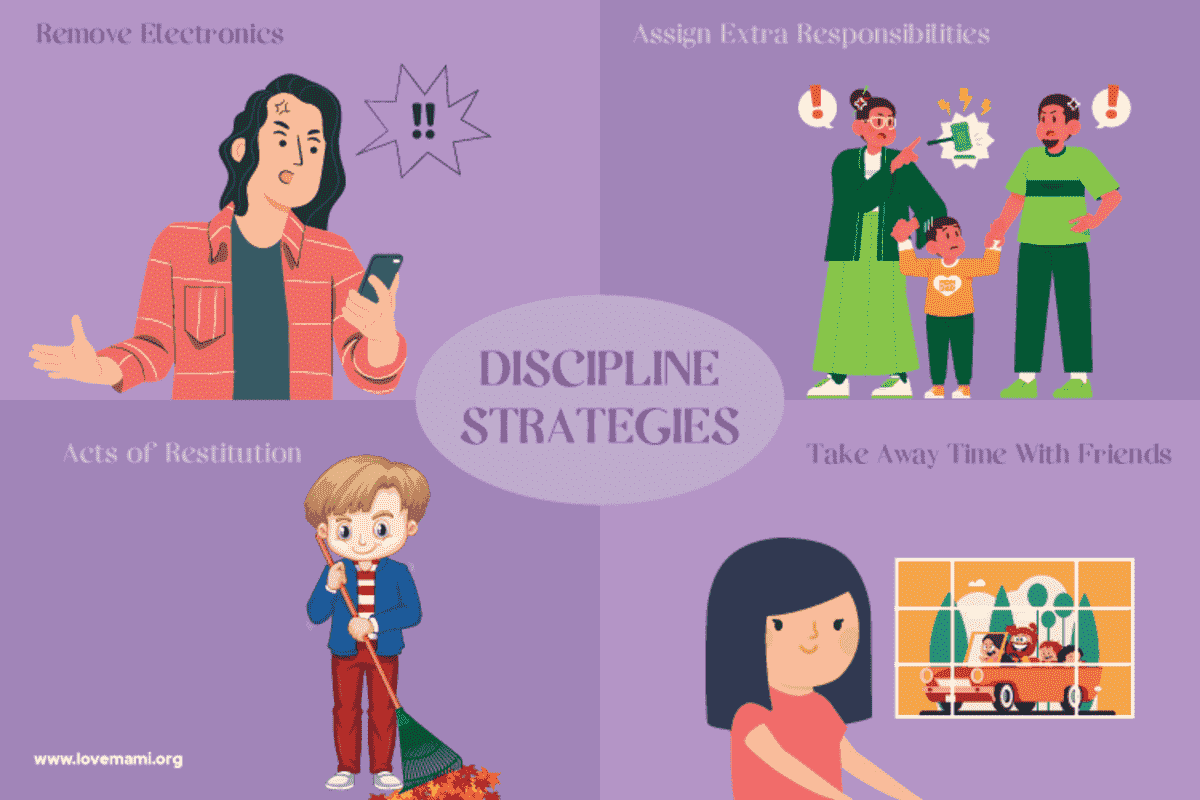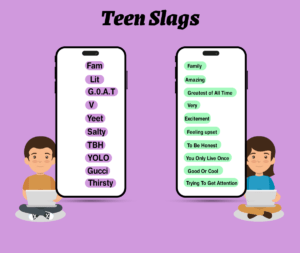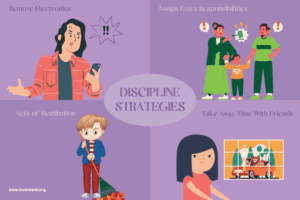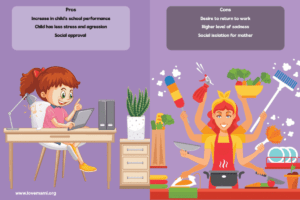You might observe notable behavioral and attitude shifts in your child as they approach teenage. Parenting a teenager can be difficult, but you and your child can adjust to the change more easily if you are aware of typical behaviors and use constructive disciplining techniques.
Teen Issues and Behaviors
Your teenager is probably going to become more focused on their social life during their teenage years and yearn for greater solitude and independence. They might want greater independence, hang out with friends more, and engage in negative behaviors including pushing boundaries, fighting, and violating limits. It’s critical to understand that these actions are typical of growing up.
Teenagers may also face difficulties with relationships, stress, peer pressure, and identity exploration. They might be more emotionally erratic and prone to risk-taking behaviors as their brains continue to grow. It’s critical to offer direction and encouragement while giving them room to overcome these obstacles.
Strategies for Effective Discipline
It takes a combination of understanding, constancy, and severity to discipline a teenager. Here are some tips to assist you in effectively mentoring your teens:
⦁ Encourage open communication by talking to your teen regularly. Have a nonjudgmental conversation on issues like relationships, peer pressure, and personal accountability while you hear their points of view.
⦁ Praise and Rewards: Give your teen credit for their accomplishments and good deeds. Positive feedback raises their self-esteem and motivates them to keep making wise decisions.
⦁ Establish clear rules and consequences for breaking them to ensure consistency in the home. To encourage buy-in and a knowledge of expectations, involve your teen in the process of writing these rules.
⦁ Take Privileges Away: If your kid disobeys, you may want to restrict their access to certain privileges, such as social gatherings or screen time. Make sure the punishment is appropriate for the offense and that its goal is education rather than punishment.
⦁ Natural Consequences: Whenever possible, let your kid face the unavoidable effects of their behavior. For instance, they could have to deal with the consequences of their decisions if they ignore their duties.
⦁ Give Your Teen More Obligations: Motivate your teenager to make up for their misdeeds by giving them additional duties or by carrying out acts of reparation.
⦁ Avoid Power battles: When enforcing rules, stay calm and strong. Refrain from engaging in disputes or power battles with your teen. Keep your relationship respectful and compassionate.
⦁ Think of Solutions: When dealing with behavioral challenges, involve your adolescent in the process of fixing problems.
Avoiding Future Issues
Focus on preventing future issues in addition to addressing present ones by:
⦁ Communicating your expectations for conduct, duties, and privileges is a key component of setting clear expectations. Offer direction and assistance to your teenager as they learn to manage their growing independence.
⦁ Listening to Your Child: Give your teen’s concerns, thoughts, and viewpoints your full attention. Be a reassuring influence in their lives and promote open dialogue.
⦁ Time Spent Together: Establish a close relationship with your teenager by participating in activities they love and demonstrating an interest in their hobbies. Set a good example by modeling healthful behavior.
⦁ Communicate Often: Even if your teen seems unwilling to contribute, continue to communicate with them regularly. Provide an atmosphere where people can freely express themselves and ask questions.
Although raising a teenager can be difficult, you can support them through this life-changing period if you have the necessary empathy, patience, and disciplining techniques. You can assist your teen in maturing into a responsible and self-sufficient adult by encouraging open communication, defining expectations, and offering support.
Which Types of Punishment Are Offered for Teenagers?
The following are seven categories of teen punishing techniques:
1. Grounding: This is preventing the teenager from going out or engaging in social activities for a predetermined amount of time.
2. The removal of privileges: As a result of their actions, teenagers may be denied access to specific privileges, including the use of electronic devices, the internet, driving privileges, and family outings.
3. Extra tasks: Teens can learn responsibility and make up for their misdeeds by being assigned extra home responsibilities.
4. Making amends: To make up for the harm they’ve caused, teenagers can be forced to apologize, replace anything they broke, or correct any damage they made.
5. Physical punishment: This method includes physical punishment, such as beatings, but it’s crucial to remember that it’s debatable and not advised by many professionals.
6. Speaking warnings: Correcting the teen’s behavior by scolding them or by raising your voice.
7. Humiliation: Calling attention to the teen’s wrong behavior in public; nevertheless, this approach should only be used rarely or never at all since it can be harmful to their self-esteem.
Why Doesn't My Child Seem to Be Concerned About Consequences?
Because they believe it to be the best course of action in the present situation, your child might not seem to worry about the consequences.
This behavior could have several causes.
Your teen’s exposure to continual punishment may prevent them from experiencing normal consequences. When faced with punishment, they could find it difficult to understand the inevitable consequences in their minds because they are focused on the conflict or feelings that the punishments evoke.
Chronic stress brought on by punishment-related fear is another possible component that hinders their capacity to learn through cognitive processes, or the “thinking brain.”According to research, extended stress may have an effect on the brain regions in charge of memory and learning.
The hippocampus and prefrontal cortex typically support conscious learning by remembering details of experiences. But during stress, the brain changes, becoming increasingly dependent on emotional areas such as the dorsal striatum and the amygdala. Teens find it more difficult to think clearly and learn efficiently as a result of this transition, which reduces cognitive memory while enhancing emotional-based memory.












